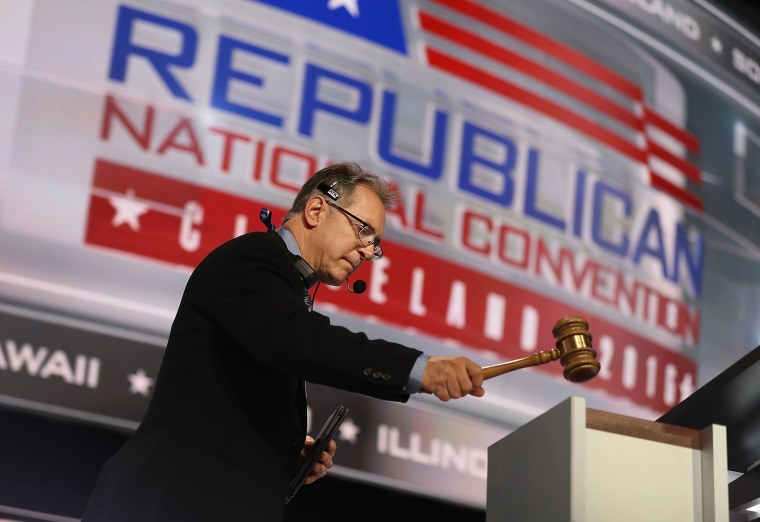Amid a flurry of Republican concerns stemming from a series of controversies this week, GOP nominee Donald Trump sought to reassure the party he now leads, telling a rally in Florida Wednesday evening that "the campaign is doing really well" and "it's never been so well united."
But between Trump's public fight with Gold Star parents who spoke at the Democratic convention, his refusal to endorse House Speaker Paul Ryan in his primary race and a host of other missteps, some supporters are seeking ways to get the candidate back on track.
And some high-profile Republicans are jumping ship. GOP donor and Hewlett Packard CEO Meg Whitman has said she’ll vote for Hillary Clinton, as has New Jersey Gov. Chris Christie's former adviser Maria Comella. And Jeb Bush's top adviser Sally Bradshaw announced that she is no longer a Republican.
All that has led to questions about the immediate future of the party's ticket and what would happen if Trump were, for whatever reason, not on it. This week, two of the top three questions on Google regarding Trump were about the possibility of Trump dropping out of the race.
There is no indication that Trump is considering leaving the race or that there would be any attempt to remove him. But the party does have rules to deal with a vacancy on the ticket, here's how it would work:
Rule 9 of the Republican Party rules covers ‘filling vacancies in nominations.”
It says that the Republican National Committee is “authorized and empowered to fill and all vacancies, which may occur by reason of death, declination, or otherwise” of the candidate.
Under the rules, the Republican National Committee has two options. It could reconvene the entire convention - all 2437 delegates. Or, a much more likely options, would be to convene the Republican National Committee's 168 members, consisting of 3 members from each state and territory, to represent the delegates.
Each member would represent one-third of the number of delegates awarded in each state and cast a vote for a presidential candidate.
For instance, three RNC members from California would represent the state’s 99 delegates. If two candidates cast a vote for made-up candidate Jan Smith and one member casts a vote for the other made-up candidate Max Brown, then Smith would receive two-thirds of the delegates – or 66 delegates – and Brown would receive one-third – or 33 delegates.
The candidate that wins 1,237 delegates would be named the new nominee.
What if Trump does not drop out but the party no longer wants him to be the nominee?
They could and lawyers defending such a move would point to the “otherwise” portion of Rule 9 listed above about when the RNC can intervene to replace a candidate.
But the bigger question is if the party has the political will to make such a move. While they might want to, that scenario is unlikely.

